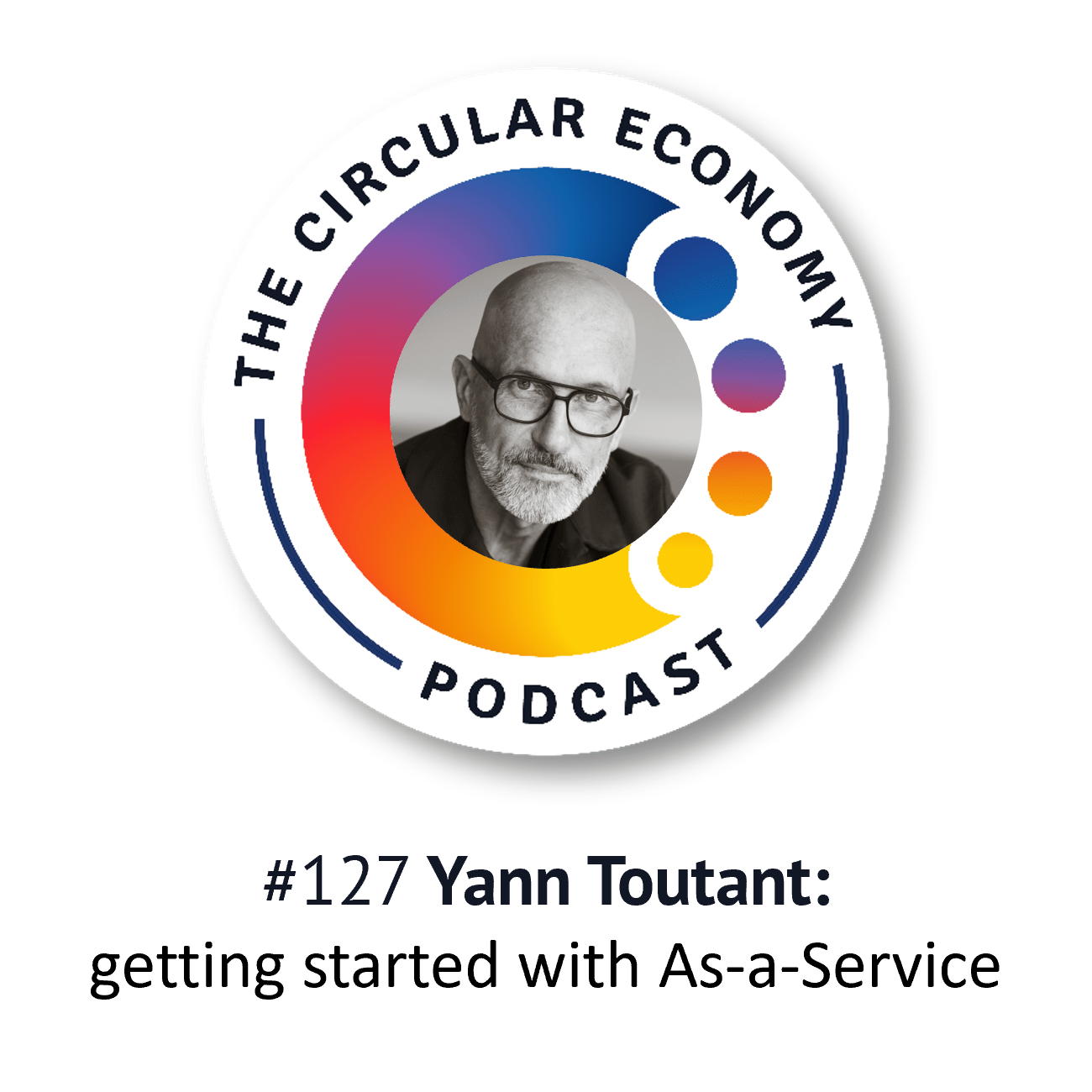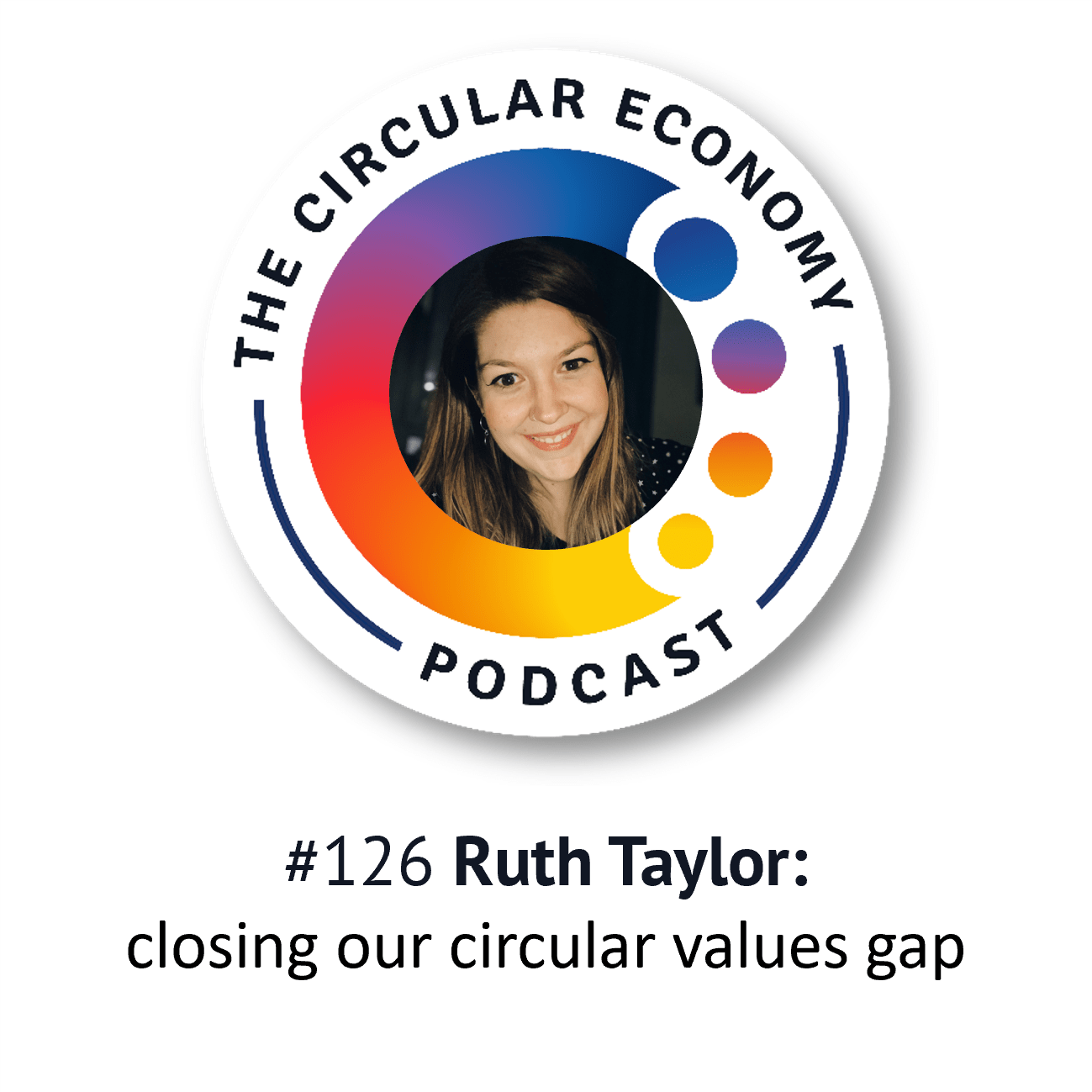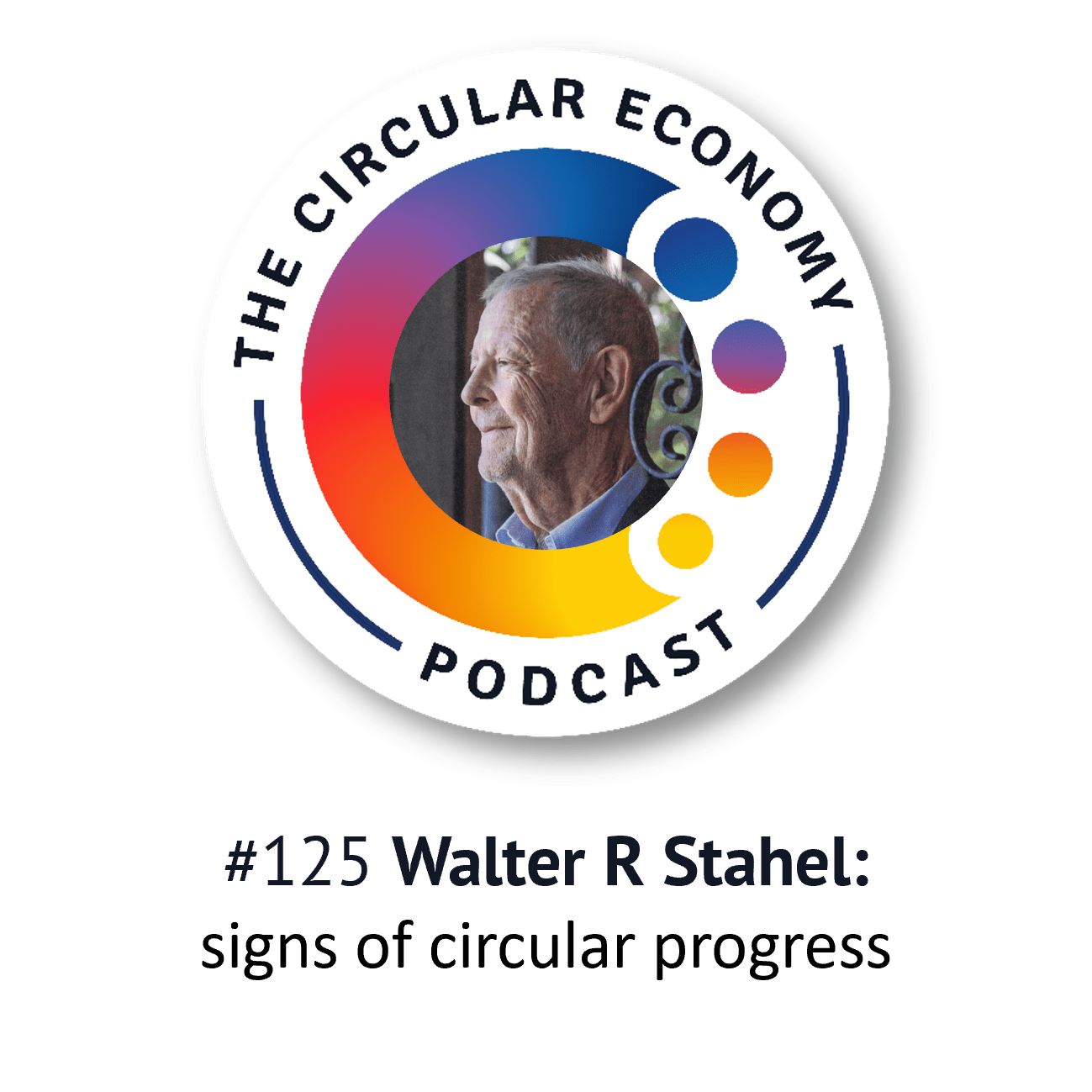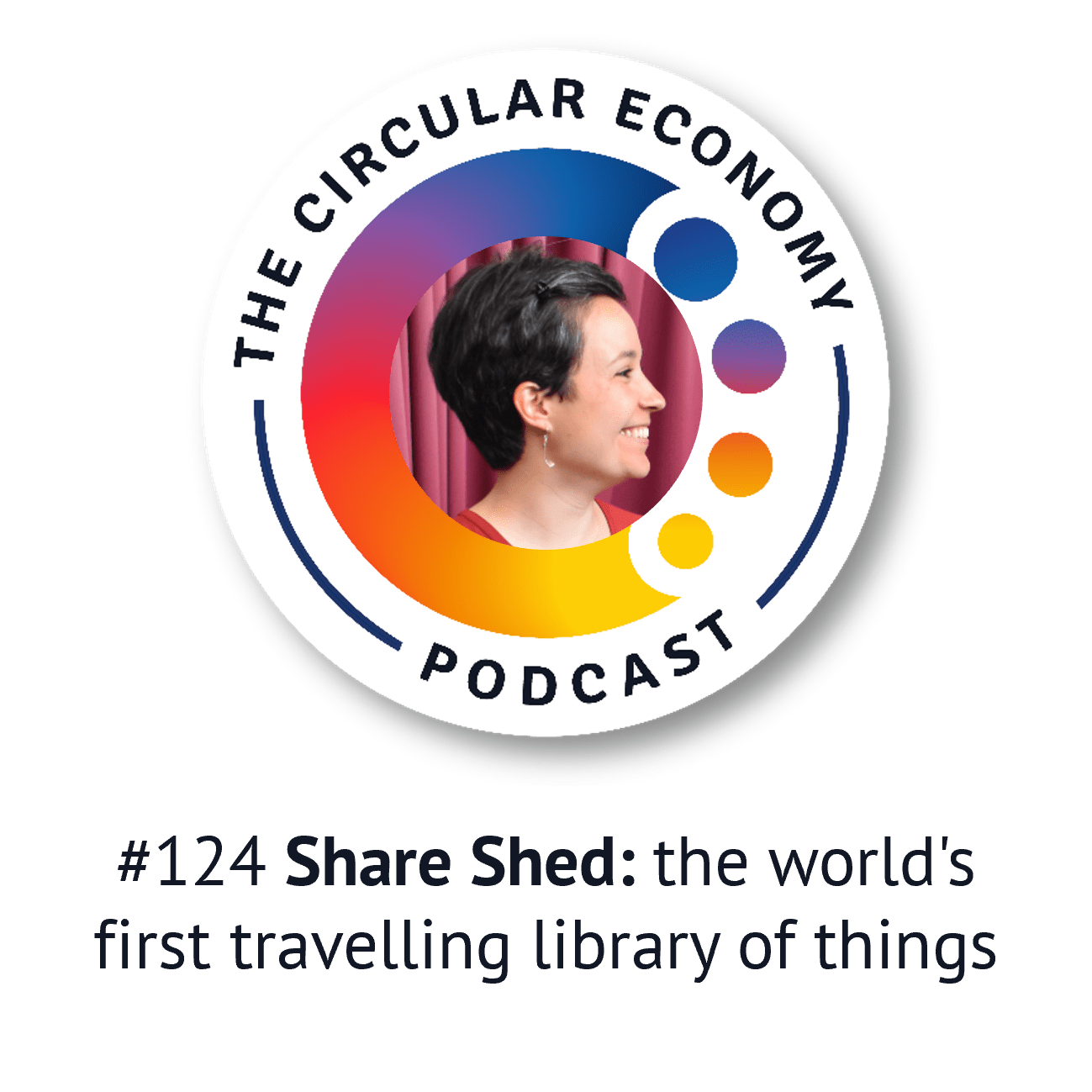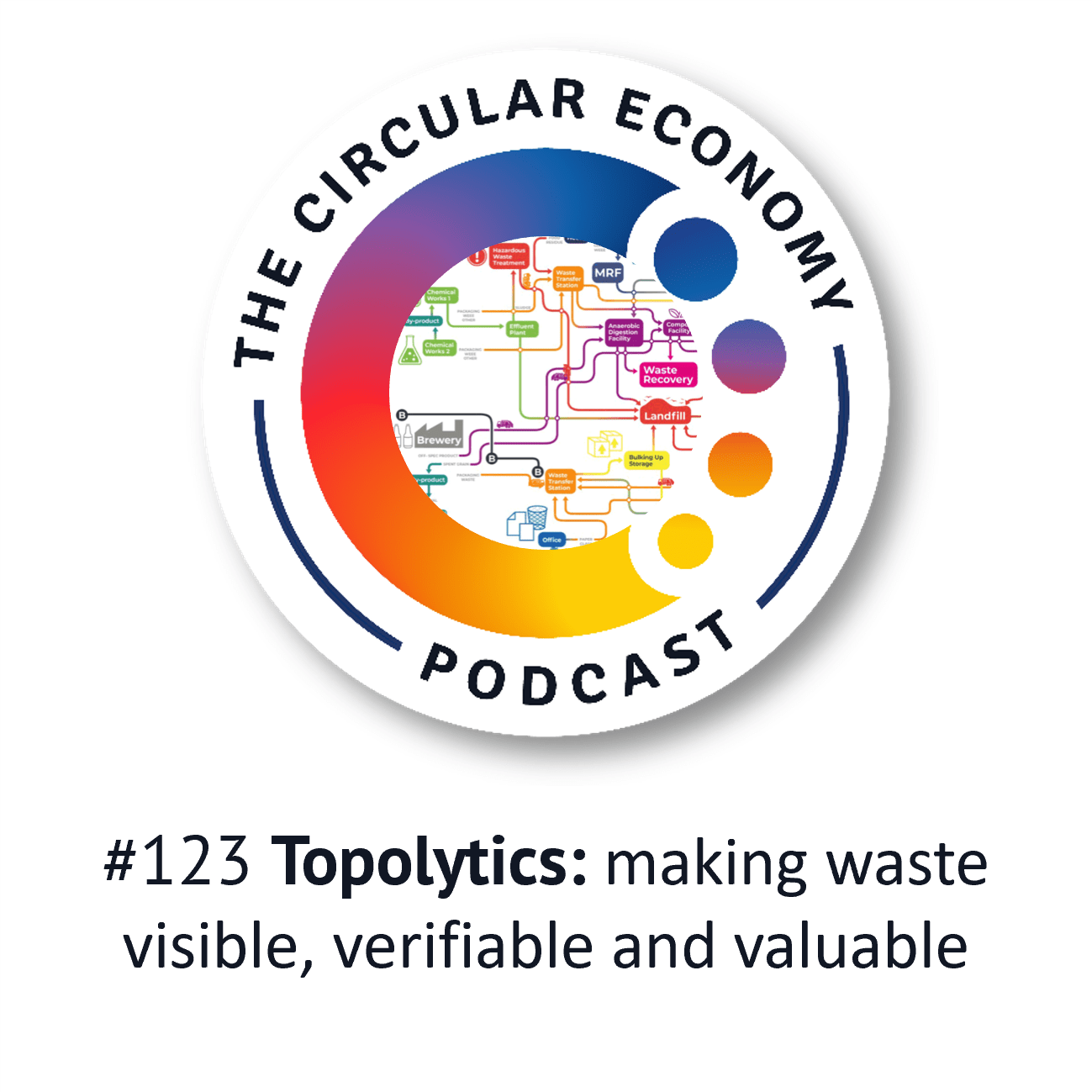Podcast: Play in new window | Download
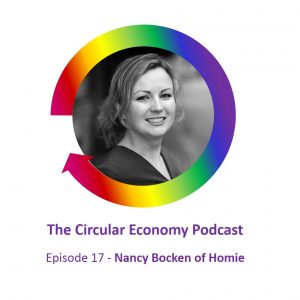 Nancy Bocken co-founded the company HOMIE, which is developing circular services for pay-per-use home appliances, starting with washing machines. Nancy has an academic background, and she is professor and research coordinator in Sustainable Business Management and Practice at Lund University in Sweden.
Nancy Bocken co-founded the company HOMIE, which is developing circular services for pay-per-use home appliances, starting with washing machines. Nancy has an academic background, and she is professor and research coordinator in Sustainable Business Management and Practice at Lund University in Sweden.
We talk about how Homie got started, and how the service works. Nancy tells about some of the challenges they faced, and the benefits of pay-per-use for customers, the business, and our environment.
Nancy gives us some great tips for those of you thinking about circular projects or startups, and we hear how Homie has built relationships with its customers so that a lot of the marketing is by word-of-mouth.
Podcast host Catherine Weetman advises businesses, gives workshops & talks, and writes about the circular economy. Her award-winning book, includes lots of practical examples and tips on getting started. Catherine founded Rethink Global in 2013, to help businesses use circular, sustainable approaches to build a better business (and a better world).
Stay in touch for free insights and updates…
Read on for a summary of the podcast and links to the people, organisations and other resources we mention.
You can subscribe to the podcast series on iTunes, Google Podcasts, Spotify, TuneIn, or search for “circular economy” in your favourite podcast app. Stay in touch to get free insights and updates, direct to your inbox…
Links we mention in the episode:
- Nancy Bocken on LinkedIn https://www.linkedin.com/in/nancy-bocken-b7384614/
- homiepayperuse.com (Homie official website)
- @homiepayperuse (Homie on Twitter)
- Link to article on the environmental impact associated with the HOMIE model: https://www.sciencedirect.com/science/article/pii/S0959652618320109?via%3Dihub
About Nancy
 Nancy Bocken is professor and research coordinator in Sustainable Business Management and Practice at Lund University,The International Institute for Industrial Environmental Economics (IIIEE). She focuses on topics like sustainable business model innovation, sufficiency, and experimentation. Recently, she was awarded the prestigious European Research Council (ERC) research grant of 1.5m EUR to investigate experimentation with circular service business models in a company context, a 5-year research programme, starting in 2020. Next to her main role at Lund University, she is a Fellow at Cambridge Institute for Sustainability Leadership, and Visiting Professor at Lappeenranta University of Technology, Maastricht University, and TU Delft.
Nancy Bocken is professor and research coordinator in Sustainable Business Management and Practice at Lund University,The International Institute for Industrial Environmental Economics (IIIEE). She focuses on topics like sustainable business model innovation, sufficiency, and experimentation. Recently, she was awarded the prestigious European Research Council (ERC) research grant of 1.5m EUR to investigate experimentation with circular service business models in a company context, a 5-year research programme, starting in 2020. Next to her main role at Lund University, she is a Fellow at Cambridge Institute for Sustainability Leadership, and Visiting Professor at Lappeenranta University of Technology, Maastricht University, and TU Delft.
Nancy co-founded the company HOMIE, which is developing circular services for pay-per-use home appliances, starting with washing machines. She is also advisor to organisations like TNO (Dutch organisation for applied sciences) and FSC (Forest Stewardship Council).
What we talk about
[02:50] After a quick recap on how we met a few years ago, at the Institute for Manufacturing conferences at University of Cambridge, Nancy tells us how the idea for pay-per-use came up from the research she was doing on circular economy business models. She was frustrated that, despite all the evidence on how circular business models could work, there were few real examples. Some seed funding from TU Delft helped get the project going, and they realised the pay per use model could change behaviour too.
[06:05] The next stage was to look at how to commercialise the idea, and more funding helped with that. Nancy explains how pay-per-use works, with wifi tracking technology added to the appliance and what it tracks, and what kind of behaviour changes people make.
The Homie team wanted to make the charging scaleable, so you pay more for hotter washes etc. It found that customers changed their clothes-washing habits, washing at significantly lower temperatures and on average 30 per cent less than before.
Homie pays for washing machine and its ongoing maintenance. Homie’s competitors tend to rent the machines and don’t have the tracking for how it is used, so there is no incentive to wash less, wash more economically etc.
The business model
[10:25] Catherine asks how the business model works for Homie – are they able to benefit from the energy savings? Nancy talks about some of the ideas for working with appliance manufacturers and energy suppliers.
[14:05] Nancy talks about the challenges they’ve faced, including getting the first batches of suitable washing machines, establishing a business case, sorting out the technology, getting longer-term funding. Nancy’s advice to others is to experiment and try and get it going.
[15:35] Ecosystem of suppliers and partners around the business, helped by being at TU Delft, and having colleagues working on the Internet of Things, behaviour change etc so Nancy and her team could tap into lots of new thinking and research.
Customer needs
[16:33] Nancy explains the motivations of the first customers – those interested in sustainability, those on low income and interested in more flexible models rather than having to own a washing machine. The extent of word of mouth marketing has been surprising, and very helpful.
We hear how Homie gets closer to the customer, supporting behaviour change etc. Homie offers customers a free 90-degree ‘maintenance wash’ to help keep the machine in good condition.
[21:09]Nancy explains more about how the customer communication channels work, and how Homie tries to act as a ‘service provider’ and has a new slogan focused on ‘worry-free washing’
Pay per use vs linear models
[21:42] Catherine asks about the washing machine itself – how did Homie decide which brand to use? Nancy explains the criteria, and how they researched possible options. Catherine shares her ideas for the ‘circular economy’ version of the Which? Reports.
[25:59] We talk about how government policy could help with this, and the ‘planned obsolesence’ model for home appliances. Homie realised that it is difficult for people to work out the full life cost, and think more about the purchase cost – perhaps forgetting to check how long it is likely to last, how repairable (or not!) it might be.
Nancy explains that Homie offers a replacement machine within 24 hours in case of a breakdown.
Circular economy start-up tips
[29:10] Nancy’s top tip for start-ups – get started! She hears from lots of people with great ideas that they had a couple of years ago, and haven’t started. Talk to people (and find some honest people who will tell you what they really think), test your ideas, experiment. Don’t wait for the perfect scenario – work out how you can test the concept. Do your homework on the competition, so you know what is unique about your model – this worked well for Nancy when one of the possible funders said ‘this has been done already’ – but Nancy knew the competitor and what was different.
Work out how you can start small – eg one town – and can gradually expand from there. Homie was receiving lots of requests from people saying ‘can you set up in our town/city’, without doing any marketing
[33:06] Nancy tells us a bit about the projects she and the Homie team are looking at next, and how to get in touch.
To find out more about the circular economy, listen to Episode 1, read our guide: What is the Circular Economy or buy the book: A Circular Economy Handbook for Business and Supply Chains
Why not sign up for the latest episode and insights, straight to your inbox?
Podcast music
Thanks to Belinda O’Hooley and Heidi Tidow, otherwise known as the brilliant, inventive and generous folk duo, O’Hooley & Tidow for allowing me to use the instrumentals from the live version of Summat’s Brewin’ as music for the podcast. You can find the whole track (inspired by the Copper Family song “Oh Good Ale”) on their album, also called Summat’s Brewin’. Or, follow them on Twitter.
